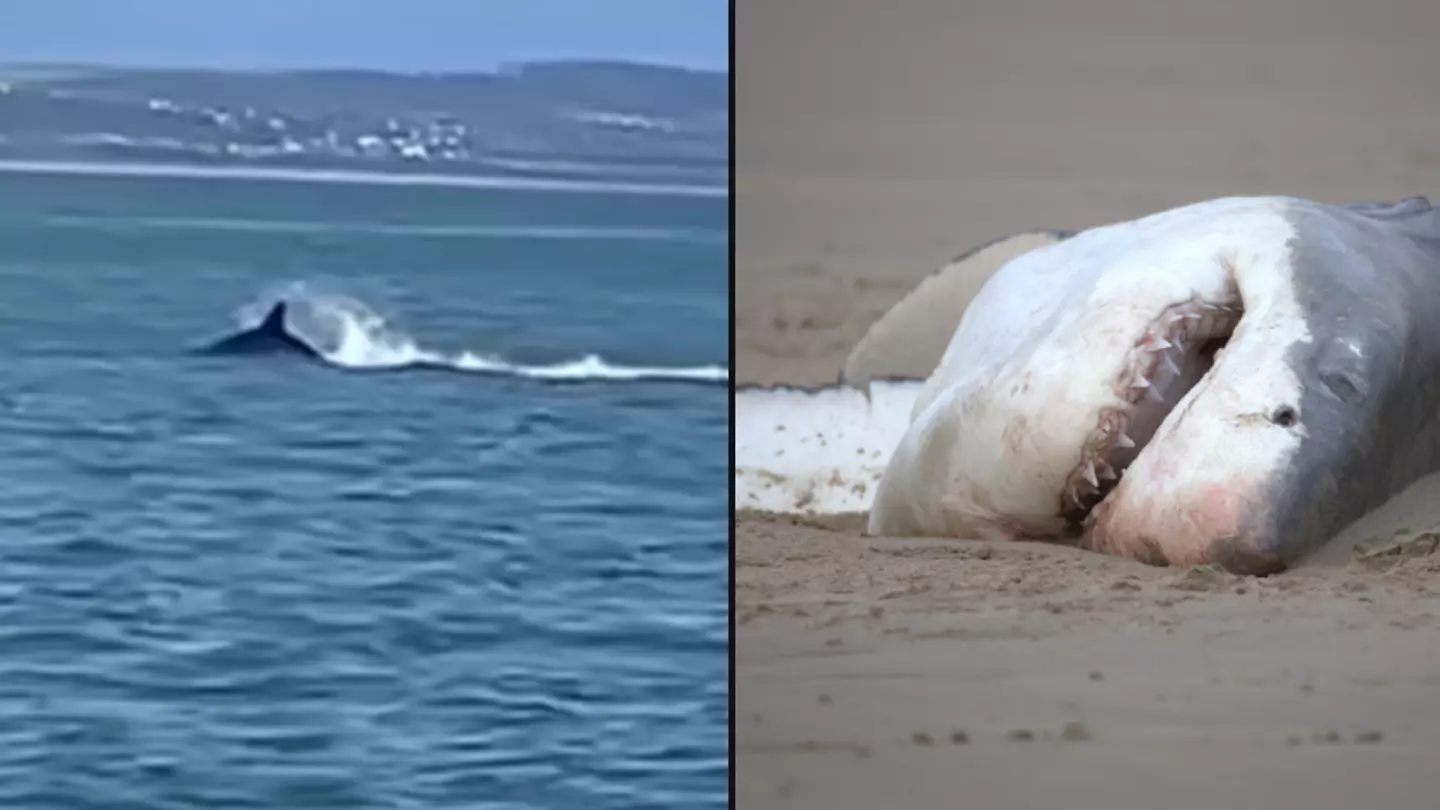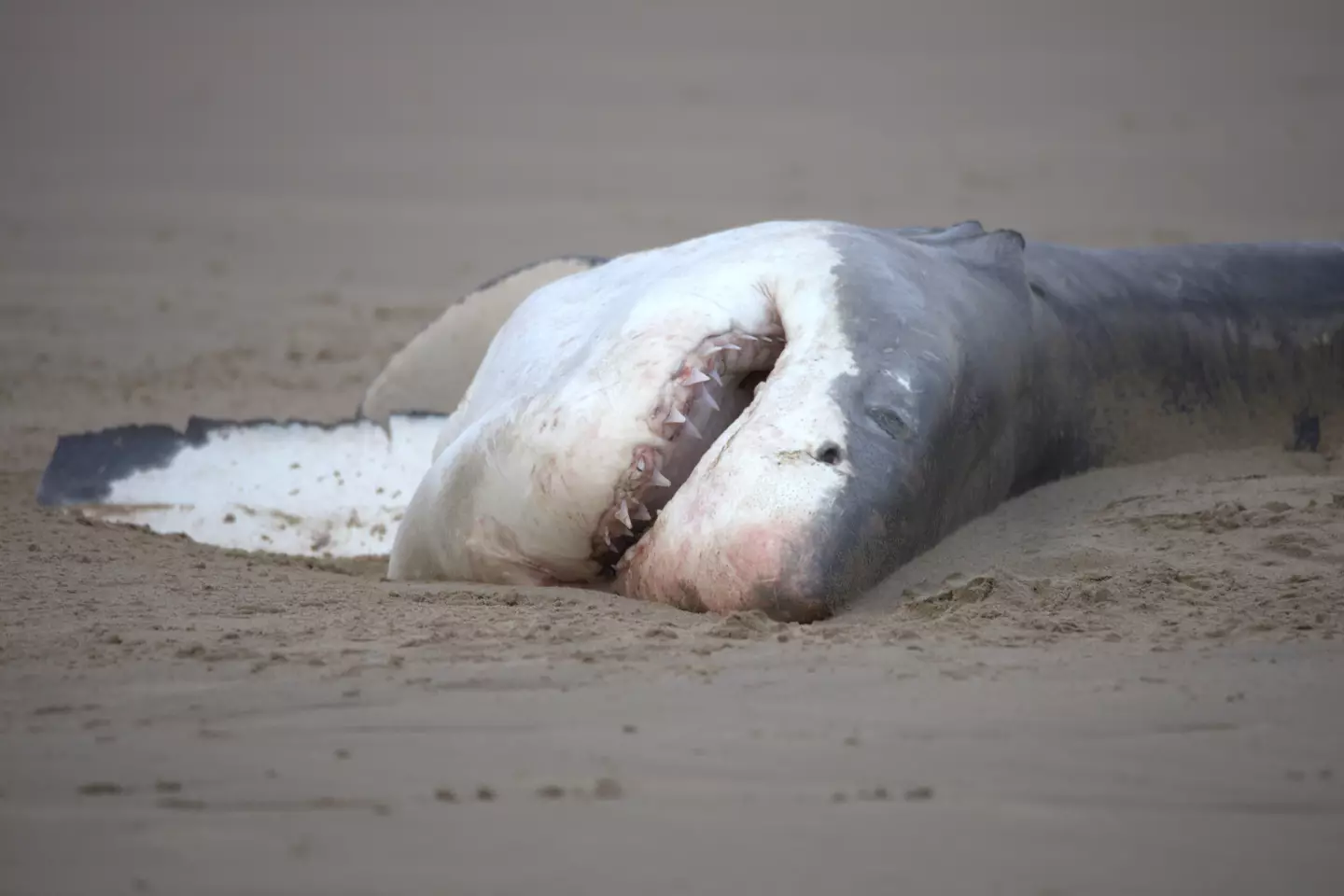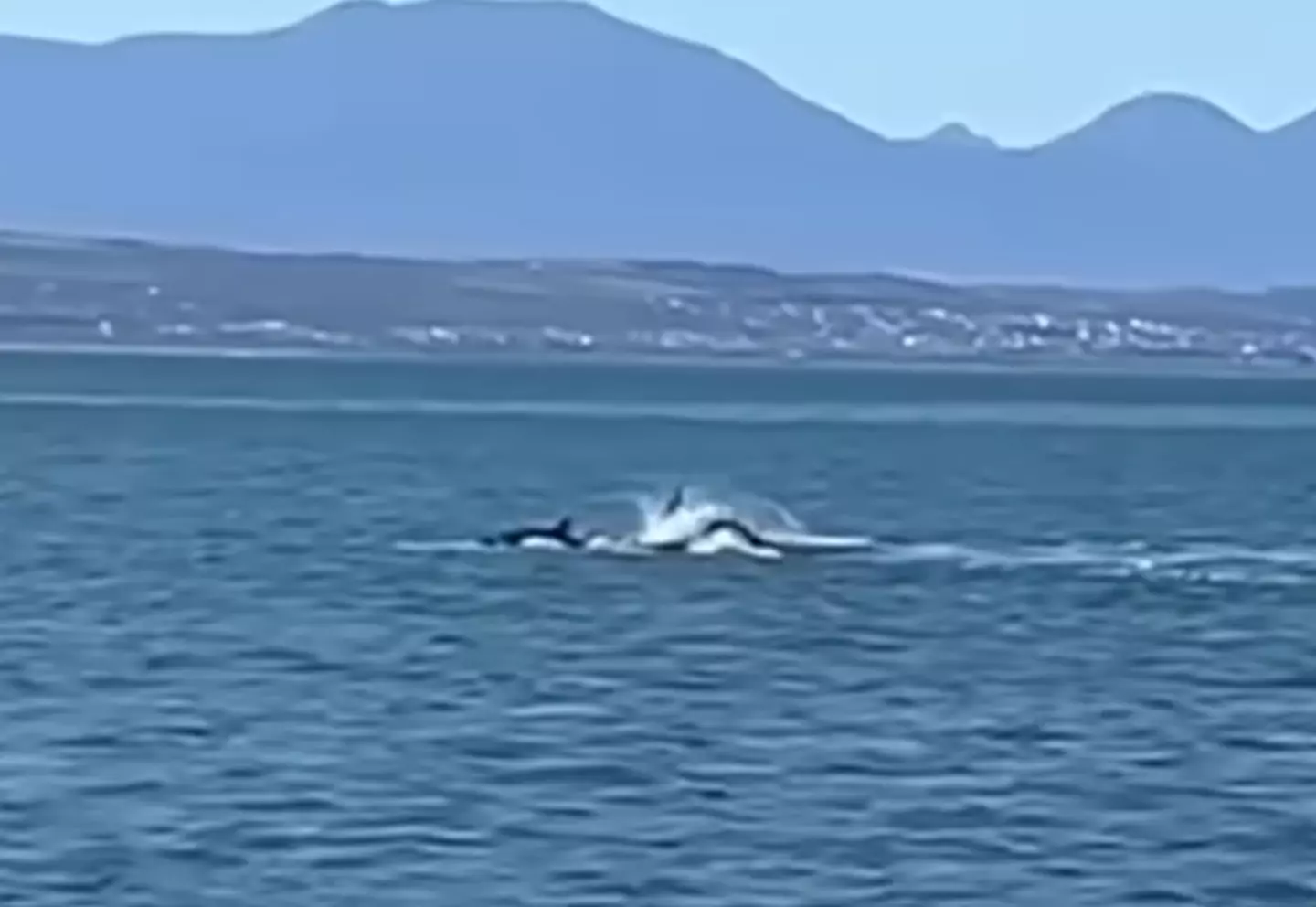
Astonishing footage from South Africa has captured the moment a killer whale took out a great white shark in just two minutes - for the 'first time ever'.
Filmed off the coast of Mossel Bay, the video shows the orca 'Starboard' consume the 2.5-metre (8.2 feet) shark as it carried the great white's liver in its mouth. Check it out:
This comes as a bit of a revelation, as it shows that killer whales no longer need to hunt in packs to take down their rivals in the sea.
Advert
Orcas normally use their combined intelligence and strength to attack their prey.
Esther Jacobs, from the marine conservation initiative Keep Fin Alive, witnessed the attack take place.
She said: “Upon reaching Mossel Bay’s Seal Island, the scent of shark liver oil and a noticeable slick indicated a recent kill.
"Tracking Port and Starboard near the island, they remained separated.
Advert
“Witnessing a white shark's fin break the surface initially sparked excitement, but that turned to a sombre realisation as Starboard swiftly approached.
"The moment Starboard rapidly preyed on my favourite shark species was both devastating and intensely powerful.”
Dr. Primo Micarelli, from the Shark Studies Centre and Siena University in Italy, was also on board the vessel White Shark Africa at the time.

He said: “Over two decades of annual visits to South Africa, I've observed the profound impact these killer whales have on the local white shark population.
Advert
"Seeing Starboard carry a white shark's liver past our vessel is unforgettable. Despite my awe for these predators, I'm increasingly concerned about the coastal marine ecology balance."
Dr. Alison Towner, who led an international team researching the discovery, said: “The astonishing predation, off the coast of Mossel Bay, South Africa, represents unprecedented behaviour underscoring the exceptional proficiency of the killer whale.
“Again, as previously in South Africa, the orcas are exhibiting a strong preference for extracting and consuming the lipid-rich livers of white sharks – a specialised feeding behaviour.
“But what we witnessed was an orca, nicknamed Starboard – due to his collapsed dorsal fin – performing alone to incapacitate and consume a white shark within an astounding two-minute timeframe.
Advert
“Starboard was observed preying on a 2.5-metre juvenile white shark, later carrying the shark’s liver in its mouth past a boat.

"This sighting revealed evidence of solitary hunting by at least one killer whale, challenging conventional cooperative hunting behaviours known in the region.
“These are ground-breaking insights into the predatory behaviour of this species, and our findings significantly contribute to the global understanding of Killer Whale predation dynamics, enhancing knowledge of marine ecosystems and predator-prey relationships”.
Advert
Dr. Simon Elwen, an expert in the ecology, behaviour, and conservation status of whales, added: “The observations reported here add more layers to the fascinating story of these two killer whales and their capabilities.
"As smart, top predators, killer whales can rapidly learn new hunting techniques on their own or from others, so monitoring and understanding the behaviours used here and by other killer whales in South Africa is an important part of helping us understand more about these animals.
“The presence of these shark-hunting killer whales possibly ties into broader ecosystem dynamics.
"Rapid developments in this phenomenon, make it challenging for science to keep pace, prompting us to publish these timely short communications."
Featured Image Credit: SWNSTopics: Shark Attacks, Sharks, Animals, World News